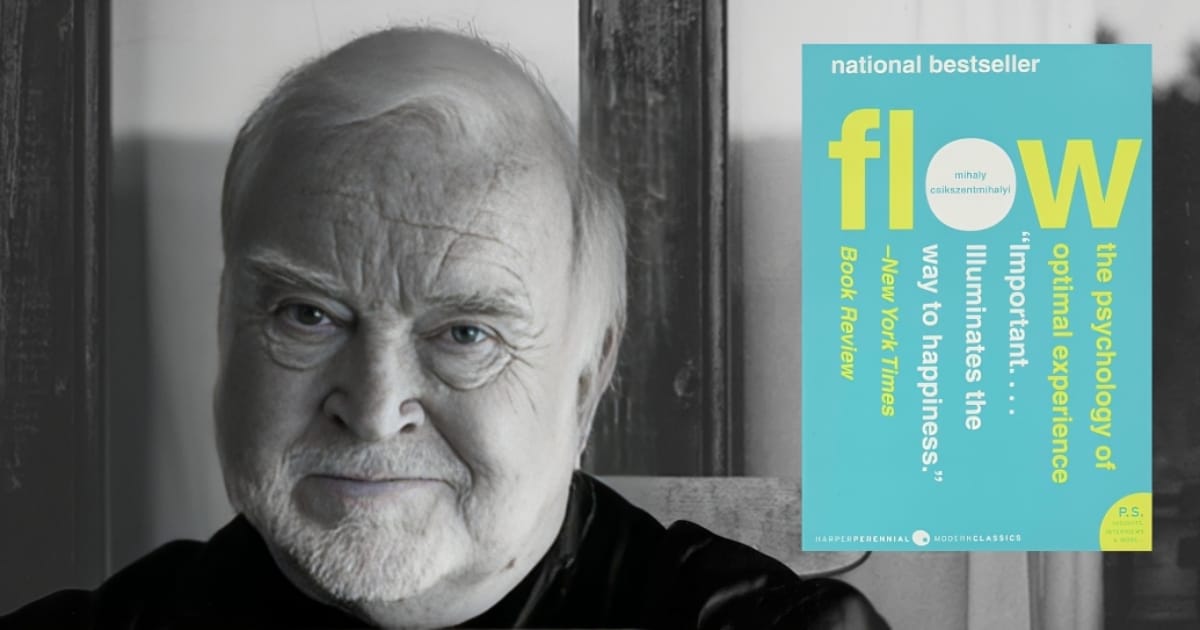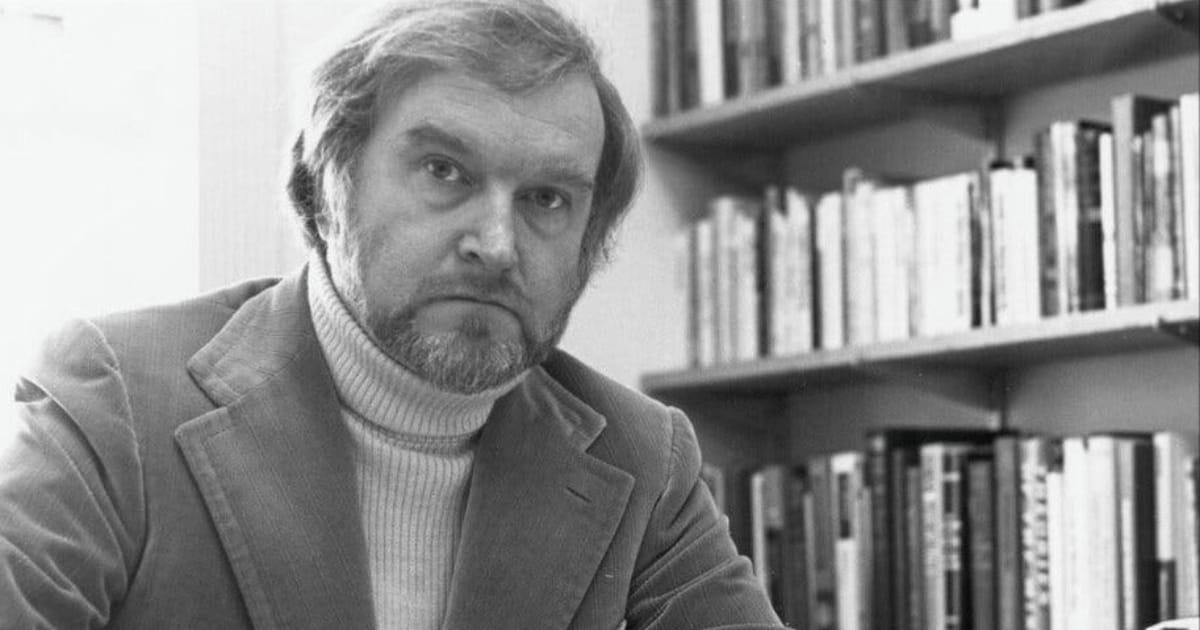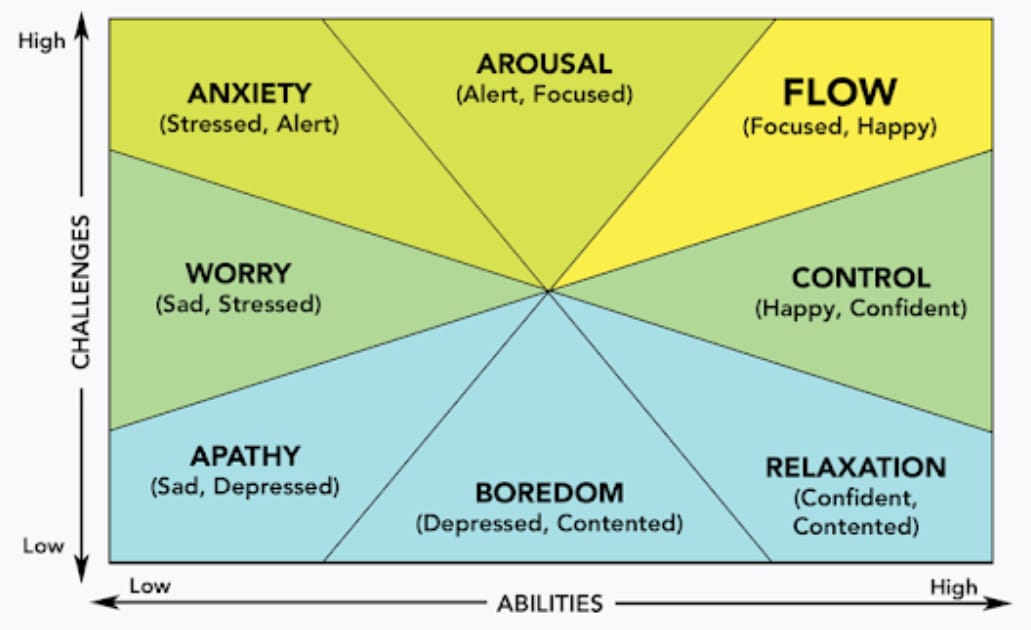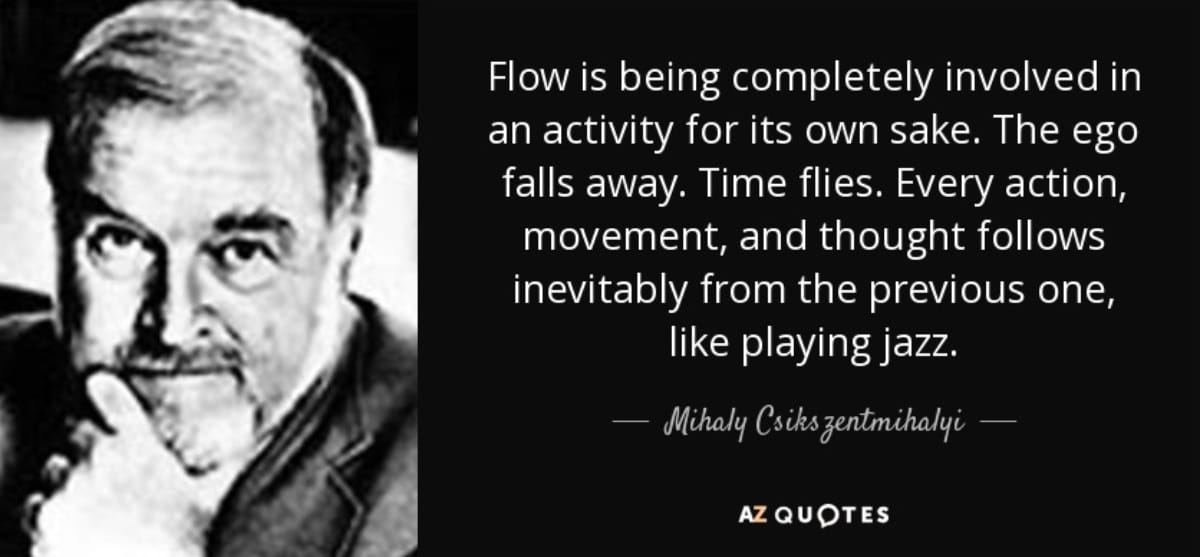Finding Your FLOW: Lessons by Mihaly Csikszentmihalyi

Mihaly Csikszentmihalyi, renowned for his work on the psychology of optimal experience, has transformed our understanding of happiness and productivity. His most significant contribution is the concept of 'flow,' introduced in his book 'Flow: The Psychology of Optimal Experience.' This article looks into the essence of Csikszentmihalyi's groundbreaking work, revealing its profound implications for entrepreneurs and individuals passionate about personal growth.
At its core, flow represents a state of complete absorption and engagement in an activity. Envision a moment when time seemed to stand still, when your skills perfectly aligned with the challenge at hand, creating a harmonious fusion of action. This is the essence of flow. Csikszentmihalyi's research suggests that such moments are not merely peak experiences; they are also times of maximum productivity and personal growth. For entrepreneurs, comprehending and harnessing flow can be the key differentiator between ordinary and exceptional achievements.
Background of Mihaly Csikszentmihalyi

Born in 1934 in Rijeka, Croatia, Mihaly Csikszentmihalyi's journey into psychology was intriguing. After surviving WWII, his fascination with happiness and human potential led him to study psychology, seeking to understand what makes life worth living. This pursuit birthed the flow concept, coined in the 1970s after extensive research interviewing high-achievers.
Csikszentmihalyi's 1990 book "Flow: The Psychology of Optimal Experience" articulated decades of research. It challenged notions about happiness, proposing true satisfaction comes from deep immersion in challenging, engaging tasks. Flow's essence is complete absorption, where skills match challenges. Time stands still, and individuals experience effortless concentration, losing self-consciousness.
This heightened focus leads to productivity, personal growth, and fulfillment. Csikszentmihalyi found diverse individuals could achieve flow by aligning abilities with pursuits. His work highlighted cultivating environments fostering flow through clear goals, challenge-skill balance, and minimizing distractions.
Understanding Flow
Flow, as defined by Csikszentmihalyi, is a state of heightened focus and immersion in activities. It occurs when there is a balance between the challenge of the task and the skill level of the individual. In his own words, "The best moments in our lives are not the passive, receptive, relaxing times . . . The best moments usually occur if a person's body or mind is stretched to its limits in a voluntary effort to accomplish something difficult and worthwhile. Optimal experience is thus something that we make happen."
“Flow is the state in which people are so involved in an activity that nothing else seems to matter.”
This state of effortless concentration, where time seems to stand still and self-consciousness disappears, leads to heightened productivity, personal growth, and a deep sense of fulfillment.
This state is characterized by several psychological components:
- Clear Goals: Knowing precisely what is to be achieved.
- Immediate Feedback: Understanding how well one is doing in the pursuit of those goals.
- Balance Between Challenge and Skill: Activities that are neither too easy nor too difficult.
- Action and Awareness Merging: Losing self-consciousness as actions become automatic.
- Concentration on the Task at Hand: Intense and focused attention.
- Sense of Control: A feeling of mastery over the task.
- Loss of Self-Consciousness: Merging of action and awareness.
- Altered Sense of Time: Hours can seem like minutes.

In a business context, achieving flow can drastically enhance productivity and innovation. When entrepreneurs are in flow, they are at their most creative and efficient, solving problems with heightened insight and determination. Tasks become manageable as skills align with challenges, time dissolves, and distractions fade, allowing uninterrupted focused effort. In this optimal state, entrepreneurs tap into deep creativity and problem-solving, driving businesses forward with remarkable clarity and inventiveness, leading to innovations and exceptional achievements.
The Importance of Flow in Business and Personal Development

For entrepreneurs and those invested in personal development, understanding and achieving flow is not just a luxury; it's a necessity for outstanding performance. Flow contributes significantly to both professional success and personal well-being. In a business environment, flow can lead to:
- Increased Productivity: When in flow, individuals work more efficiently, often producing higher quality results in less time.
- Enhanced Creativity: Flow provides the mental space for innovative thinking and problem-solving.
- Greater Job Satisfaction: Work becomes intrinsically rewarding, leading to higher motivation.
A well-known example is Steve Jobs, who, though not explicitly referencing flow, demonstrated many of its principles. His deep focus, passion for design, and relentless pursuit of perfection are hallmarks of someone often operating in a state of flow. Jobs' ability to immerse himself fully in the creative process, aligning his skills with the challenges of innovation, allowed him to achieve remarkable breakthroughs in product design and user experience. His unwavering determination and disregard for distractions enabled him to channel his energy into tasks that stretched his abilities, ultimately leading to groundbreaking products that revolutionized entire industries.

Strategies to Achieve Flow

Achieving flow isn't just a matter of chance; it's a skill that can be cultivated. Here are practical steps and techniques to help entrepreneurs and individuals foster a state of flow in their daily activities:
- Set Clear Goals: Define what success looks like for each task. This clarity provides direction and a sense of purpose.
- Seek Challenges that Match Your Skills: Aim for tasks that are neither too easy nor too hard. This balance keeps you engaged and motivated.
- Minimize Distractions: Create an environment conducive to deep work. This might mean turning off notifications or carving out specific times for focused work.
- Cultivate a Passion for What You Do: Engage in activities that you find intrinsically rewarding. Passion fuels persistence and focus.
- Practice Mindfulness: Being present and mindful enhances concentration and allows for greater immersion in the task at hand.
- Learn to Enjoy Immediate Feedback: Seek out tasks where you can see the impact of your efforts right away.
- Build Your Skills: The more competent you are at a task, the more likely you are to experience flow while doing it.
- Manage Time Wisely: Allocate specific time blocks for challenging tasks, ensuring that you have enough time to engage deeply.
Incorporating these strategies can significantly enhance the likelihood of experiencing flow, leading to increased productivity and satisfaction.
Applying Flow Principles to Entrepreneurship

For entrepreneurs, applying flow principles can be transformative. Here's how:
- Align Tasks with Personal Strengths and Passions: Entrepreneurs should engage in business activities that resonate with their personal strengths and passions, as this alignment naturally fosters flow.
- Challenge Yourself Continuously: Entrepreneurship is about pushing boundaries. Setting increasingly higher goals that match growing skills can keep you in a constant state of flow.
- Create a Flow-Friendly Work Culture: Foster an environment that encourages deep work and minimizes distractions. This could mean flexible work schedules, quiet workspaces, or regular brainstorming sessions.
- Leverage Flow for Innovation: Use moments of flow for brainstorming and creative thinking. The insights gained in these moments can be pivotal for business growth.
- Manage Stress Effectively: High stress can impede flow. Effective stress management, through mindfulness or physical activities, is crucial.
Elon Musk, known for SpaceX and Tesla, exemplifies someone operating in flow. His deep involvement in complex problems, combined with intense focus and passion, demonstrates how flow drives extraordinary achievement. Musk's ability to immerse himself fully, aligning skills with formidable tasks, allows heightened concentration and productivity. His relentless pursuit of innovation, undeterred by distractions, enables him to push boundaries, leading to groundbreaking advancements shaping the future.
Final Thoughts
Mihaly Csikszentmihalyi's groundbreaking book, "Flow: The Psychology of Optimal Experience," presents a powerful framework for fostering personal and professional growth. It illuminates a path toward heightened creativity, productivity, and fulfillment. For individuals genuinely dedicated to self-improvement, embracing the principles of flow is not merely advantageous but essential for thriving in our modern world.
The pursuit of flow, as Csikszentmihalyi articulates, is the pursuit of optimal experiences. By setting clear objectives, aligning our abilities with challenging tasks, minimizing distractions, and nurturing an environment conducive to deep work, we increase the likelihood of achieving flow states more frequently.
Ultimately, it is about working with greater intelligence and joy. Integrating these lessons into our daily lives transforms seemingly mundane tasks into sources of satisfaction, elevating both our professional endeavors and personal lives. The journey towards mastering flow is as rewarding as the destination itself. Let Csikszentmihalyi's pioneering work serve as a catalyst for your own exploration of flow, inspiring you to wholeheartedly embrace challenges, immerse yourself deeply, and witness the profound transformations that unfold in your life.
Key Takeaways
| Activity | Outcome |
|---|---|
| Clear Goals | Having specific aims for what needs to be achieved. |
| Immediate Feedback | Understanding how well one is doing in relation to the goals. |
| Balance of Challenge | Engaging in tasks that match one's skill level but still offer a challenge. |
| Merging of Action & Awareness | Losing self-consciousness as actions become intuitive. |
| Concentration | Focused attention on the task at hand. |
| Sense of Control | Feeling of mastery over the task, despite the challenges. |
| Loss of Self-Consciousness | Not being overly self-aware or concerned with self, leading to greater immersion in the activity. |
| Altered Sense of Time | Perception of time changing, often feeling like it passes more quickly. |
| Strategy Implementation | Practical steps like setting clear goals, minimizing distractions, and building skills. |
Top Quotes from Mihaly Csikszentmihalyi
- "The best moments usually occur when a person’s body or mind is stretched to its limits in a voluntary effort to accomplish something difficult and worthwhile."
- "Contrary to what we usually believe, moments like these, the best moments in our lives, are not the passive, receptive, relaxing times—although such experiences can also be enjoyable, if we have worked hard to attain them."
- "Flow is being completely involved in an activity for its own sake. The ego falls away. Time flies. Every action, movement, and thought follows inevitably from the previous one, like playing jazz."
- "It is by being fully involved with every detail of our lives, whether good or bad, that we find happiness, not by trying here and there to pick up the pleasant crumbs."
- "Goals justify the effort they demand at the outset, but later it is the effort that justifies the goal."
- "When we choose a goal and invest ourselves in it to the limits of concentration, whatever we do will be enjoyable."
- "The quality of life depends on two factors: how we experience work, and our relations with other people."
- "If we are not careful, there is a good chance we end up living for the sake of climbing to the top rather than living a life we would prefer to live."
- "People who learn to control inner experience will be able to determine the quality of their lives, which is as close as any of us can come to being happy."
- "Happiness is not something that happens. It is not the result of good fortune or random choice. It is the consequence of personal effort."
- "Enjoyment appears at the boundary between boredom and anxiety when the challenges are just balanced with the person's capacity to act."
- "A person can make himself happy, or miserable, regardless of what is actually happening 'outside,' just by changing the contents of consciousness."
- "Control over consciousness determines our quality of life, and whether we use this power fully or squander it is in large part a question of education."
- "To overcome the anxieties and depressions of contemporary life, individuals must become independent of the social environment to the degree that they no longer respond exclusively in terms of its rewards and punishments."
- "In an information society, there is a growing need for mental fitness, or the control of consciousness, and for the kind of autonomy that permits individuals to function independently in the world."





